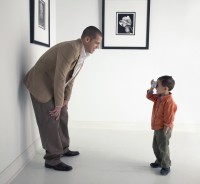
‘Hope springs eternal’ is a good old-fashioned saying that fits perfectly when discussing a new breast cancer medication that is sparking positive results.
The drug in the news is called, everolimus – brand name Afinitor. It has been approved for two years and used to fight against certain breast cancers and also treat tumors in the pancreas and kidneys. It is known for creating “exceptional responses” to treatment due to a recent turn of events for patient, Grace Silva, whose story was recently published in the New England Journal of Medicine.
After taking the drug for approximately two months, the 58-year-old experienced her “exceptional response” when tumors in her lungs virtually disappeared. According Dr. Jochen Lorch, Silva’s oncologist, this type of result from drugs is nearly non-existent.
Research studies to understand why exceptional responses occur are on-going. One reason is due to a technology known as next generation sequencing. The once very expensive test to decode DNA genetics in cancer patients is now much more affordable due next-generation technology.
With this genetic technology available, doctors have additional information at hand that helps them determine mutations in tumors, such as Grace Silvas. Mutations can have several effects including increasing the size of a tumor, enabling cancer cells to resist drugs, or working toward shrinking tumors.
Another piece of good new is from the National Cancer Institute that has initiated a new program called the Exceptional Responders Initiative focused on cataloging and identifying mutation patterns. This new initiative along with upgrades by cancer researchers to the way they work with new drugs is jump-starting additional studies. With new visions on the horizon, the future for cancer patients is brighter.
If you are seeking new innovative treatments for your cancer, we invite you to evaluate the Issels Treatment programs.





